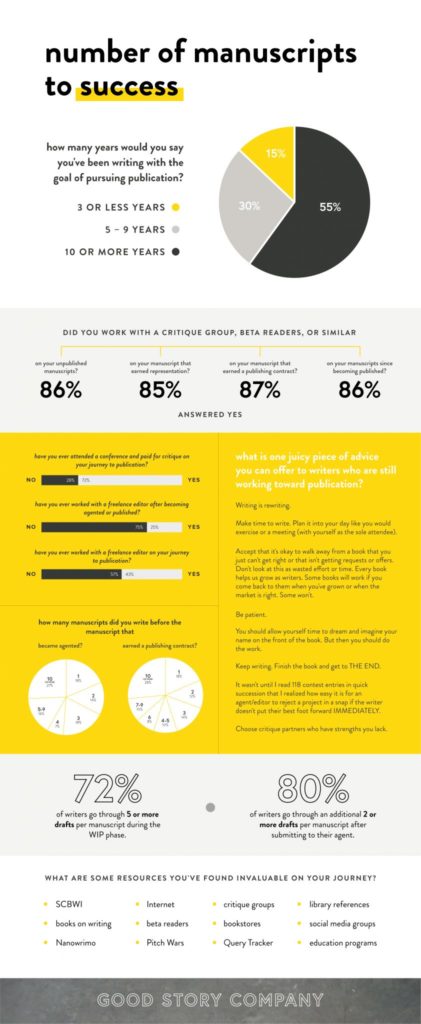“Is my writing good enough?” is one of the first questions most writers ask when they get in touch about editing or coaching. Unfortunately, I can’t answer that because there’s an intrinsic problem with the question: Green-lighting manuscripts (for querying, for further development, for self-publishing) isn’t what manuscript editors do.
Whether or not your book is publishable is a question for the people who actually publish books: literary agents and acquiring editors at publishing houses. Not only can I not tell you whether your writing is “good enough” for traditional publication, but I recommend running far, far away from any editor who does.
Independent editors like me help you make your manuscript the best you’re capable of making it at this point in your writing career. We can’t—and shouldn’t—facilitate your attempted end-run around querying your manuscript to literary agents or set you up to hope for self-publishing sales that may or may not materialize).
I get that you’re seeking objective insight into your writing. That’s something editing and coaching can deliver in spades. But if your heart’s most fervent desire is reassurance that your writing is “good enough,” I challenge you to refine your question to something more useful: Is your writing good enough for what?
Goal: Traditional publication
“Is my writing good enough to be traditionally published?” is a question for a literary agent. If you’re hoping your manuscript will rise above among the hundreds to thousands of manuscripts agents receive every month, the only way to find out is to try. Once you’re absolutely certain that your manuscript is as close to perfect as you can make it, submit your manuscript.
Straight form rejections or a chorus of crickets shows that your query letter itself is the weak link. Perfect your pitch using the query letter and submission advice on my website. If you’re getting requests for partials or fulls but then don’t hear anything more, it’s likely that something about the story—the structure, concept, or marketability, or the writing itself—is holding it back. That’s the point at which a professional editor can help you steer back on course.
Read more: Should you get professional editing before querying agents?
Get eyes on your manuscript from informed peers. Study your craft, and get help from editors. You’re not finished writing your book after you’ve re-read and spellchecked the first draft.
Read more: The simple six-pass revision plan
Are you serious about getting published? Those links in the preceding paragraphs are action points. If you haven’t ticked through those tasks yet, a lot of important work still lies ahead.
… But after you complete all those steps, your editor should be able to tell you if your book is good enough to publish, right?
No. Seriously, no.
The quality of your story and writing is only one element determining whether your book makes it past the gatekeepers. The common misconception is that only the best books are accepted for publication, but in fact only the most marketable books are accepted for publication. Publication depends on what sort of books publishers are seeking more of, what they don’t want more of, your social presence as an author, your identity as the author of this particular book with these particular themes, what’s selling like hotcakes, what’s falling out of favor, and whether the agent or publisher is willing to put time and money into your manuscript if they feel the execution falls a little short.
It pretty much boils down to luck and timing. Is your book seen by the right people in the right place at the right time? The funny thing is that even publishers can’t reliably predict which books will earn out their advances, fade away, or become bestsellers.
That leaves you with the only strategy within your control: Make sure your book is the best it can be before you query it. Don’t send off a half-baked, unrevised manuscript in the hope that someone will love it enough to undertake developing and editing it the rest of the way. Writing may be your hobby or dream, but publishing is a business. Publishing is an investment.
Revise thoroughly. Edit relentlessly. Get outside feedback from objective fans of your book’s genre. Make your manuscript as perfect as you reasonably have the resources to do. You can rest assured that the other writers in the slush pile are doing the same.
Read more: Should get you get professional editing before querying agents?
Read more: How long should you query your manuscript?
Read more: Developmental editing vs. copyediting—Which do you need most?
Goal: Self-publishing
The answer to the question “Is my writing good enough to be self-published?” must come from you—because you’re the boss as a self-publisher. It’s your responsibility to accept the financial and entrepreneurial risk of producing and marketing a consumer-ready product that readers will buy.
Many writers choose self-publishing hoping to publish their books inexpensively or for free. Amateur writing slapped with an amateur cover and sold by an amateur marketer isn’t likely to create a ripple in the publishing pond. Readers trust the quality of traditionally published books because publishers invest in professional services and support for their releases. As a self-publisher, you must do the same.
Most writers who plan to self-publish come to me thinking (hoping) that all they need is a spot of copyediting. Almost without exception, these manuscripts are not ready for copyediting. Developmental (story) editing is something you don’t typically know that you need, because story issues are traitorously tricky to spot in your own writing. For new authors, that problem is compounded by all the things about storytelling and storytelling technique they don’t know that they don’t know.
The solution is a qualified, ethical editor who won’t take money to polish a story that still needs fundamental work. A reputable editor will ask to see your manuscript before quoting an editing rate or accepting your manuscript for editing. If the manuscript isn’t ready for prime time, they’ll suggest alternative services to prepare your work or steer you to resources to develop your writing.
Read more: The author’s guide to finding and hiring an editor
Read more: When are you ready for professional editing?
Goal: Getting better
The other good enough question writers frequently ask is whether their books are “good enough” or “worth” continuing to work on or edit. This answer must come from you.
Some writers need writing classes. Most need to read widely and get more practice before they can produce something worth the time and expense of editing. They don’t objectively have the skills yet to write a commercially successful novel.
But being commercially successful isn’t the only reason people write novels. Many of my clients seek me out because they don’t want to take more classes or study and practice on their own. They want to accelerate the process with one-on-one coaching. They want more progress in less time.
And they do. Some of the most delightful books I’ve had the pleasure of working on have begun as conceptually flawed premises with weak, flat writing. But determined writers with a growth mindset almost always emerge from coaching and editing with a manuscript they’re proud of.
Is that enough to make it worth continuing to work on your novel? If your story were never published, would the satisfaction of writing it be enough to keep you at the keyboard?
All of us are born into a world of stories. We hear stories from the time we are babies, we weave imaginary tales into our play, and we craft our own narratives to make sense of our experiences. We’re all storytellers, but not all of us possess the narrative and writing skills to create a novel strangers will pay to read.
And why should you expect otherwise? As bestselling author Ann Patchett observed, “If a person of any age picked up the cello for the first time and said, ‘I’ll be playing in Carnegie Hall next month!’ you would pity their delusion, yet beginning fiction writers all across the country polish up their best efforts and send them off to The New Yorker.”
From Ira Glass, host and executive producer of the popular National Public Radio show This American Life:
Nobody tells this to people who are beginners, and I really wish somebody had told this to me.
All of us who do creative work, we get into it because we have good taste. But it’s like there is this gap. For the first couple years that you’re making stuff, what you’re making isn’t so good. It’s not that great. It’s trying to be good, it has ambition to be good, but it’s not that good.
But your taste, the thing that got you into the game, is still killer. And your taste is good enough that you can tell that what you’re making is kind of a disappointment to you. A lot of people never get past that phase. They quit.
Everybody I know who does interesting, creative work they went through years where they had really good taste and they could tell that what they were making wasn’t as good as they wanted it to be. They knew it fell short. Everybody goes through that.
And if you are just starting out or if you are still in this phase, you gotta know it’s normal and the most important thing you can do is do a lot of work. Do a huge volume of work. Put yourself on a deadline so that every week or every month you know you’re going to finish one story. It is only by going through a volume of work that you’re going to catch up and close that gap. And the work you’re making will be as good as your ambitions.
I took longer to figure out how to do this than anyone I’ve ever met. It takes awhile. It’s gonna take you awhile. It’s normal to take awhile. You just have to fight your way through that.
In my experience, a writer with grit can master the skills necessary for writing a novel, given enough time, effort, and practice. You’re probably not as good a writer as you think you are right now, but you can change that. Is it worth the effort? Only you can say.
Read more: The author’s guide to publishing goals
Is publication the end goal?
Maybe you’ve always dreamed of winning a writing award. Maybe seeing your book in print is something you’d like to cross off your bucket list. Perhaps your goal is to share your life experience with many others, or to write a bestseller, or to support yourself by writing books.
Actually getting your book published is necessary for only some of those goals. Publication might not be your end goal. Your book might not need to be commercially viable to a vast market of strangers. That means no more market-driven constraints. You’re free to do with your story and writing as you like.
“Good enough” isn’t always about publication. Winning a writing prize, holding your book in print, or crossing writing a novel off your bucket list aren’t goals that require commercial publication. Spend some time thinking about your end game. 7/12
— Lisa Poisso | Editor & Story Coach (@LisaPoisso) February 3, 2022
How’s that for a liberating idea?
Take responsibility for your writing
The responsibility for educating yourself about what makes a book solid is ultimately yours as a writer. You are responsible for making yourself knowledgeable enough to suss out whether a novel works at a fundamental level. Is the book you just read good storytelling or weak storytelling? Is the scene you just wrote compelling writing or weak gruel? If you feel lost, adrift without the tools and sensibilities to judge whether the writing you read succeeds or not, you have more reading to do.
Read more: The 10 kinds of books anyone who writes fiction should be reading
Story development consultant Jeff Lyons has this to say about taking responsibility for your success as a writer:
We live in an age where it has become frighteningly easy to go on autopilot and hand over creative control to experts, gurus, teachers, or some other authority. Being a conscious writer is about taking your creative power back and taking full responsibility for your writing process, creativity, writing successes, and writing failures.
Yes, even your failures. And that’s the good news. Because if your writing failures are always someone else’s responsibility or something else’s fault (such as some writing process or method or widget), then you’re done.
You have no control over other people. You might think you do, but you don’t. You can only control your own actions—your own writing. That’s why being responsible for it all is good news, because now you can do something about it.
Read more: The seven qualities of the conscious writer
In the end, a growth mindset may be the most important quality to bring to your writing. “In the end, I have no litmus test for talent,” writes writing teacher Kristen Lamb, “but I have a pretty good indicator of success. Are we teachable? Are we striving to grow, to get better, to actively seek tough critics to make us grow? Do we have rhino skin? Can we take constructive criticism?”
Read more: Do some people lack the talent to be authors?
Take Action: Next steps
The only path forward is to take control. Hone your authorial sensibilities.
Always be reading—never be without a book in hand or on your phone, and learn how to read like a novelist. Study reader reviews, both positive and negative, of everything you read.
Keep practicing. Write short stories. Finish multiple book-length manuscripts; it takes most writers multiple manuscripts to score a successful hit.
CLICK IMAGE TO EXPAND VIEW. Used by permission from Mary Kole, Good Story Company
It’s impossible for any writer to be completely objective about their own writing, but every author should be familiar with what readers are enjoying most from their genres. Why do these books do such a good job scratching readers’ itch? As KM Weiland suggests, the parts of your story readers like best aren’t always what you think.
The ultimate goal of any author is to meet and hopefully exceed reader expectations. This challenge presents you with a delicious prospect: coming to understand those expectations by reading other novels and listening to reviews and opinions from readers. Follow the path blazed by other books to discover your book’s own place in the market.
Happy reading—and successful writing.
Read more: Story Consultant Derek Murphy: Is Your Writing Good Enough?
Read more: Bestselling author and habits expert James Clear: Grit: A Complete Guide on Being Mentally Tough
Understanding how stories work changes everything. I’ll show you how to back up your creative instincts so your ideas hit home. It’s time to accelerate your journey from aspiring writer to emerging author.
Ready to get serious about your book? Apply to work with me.



